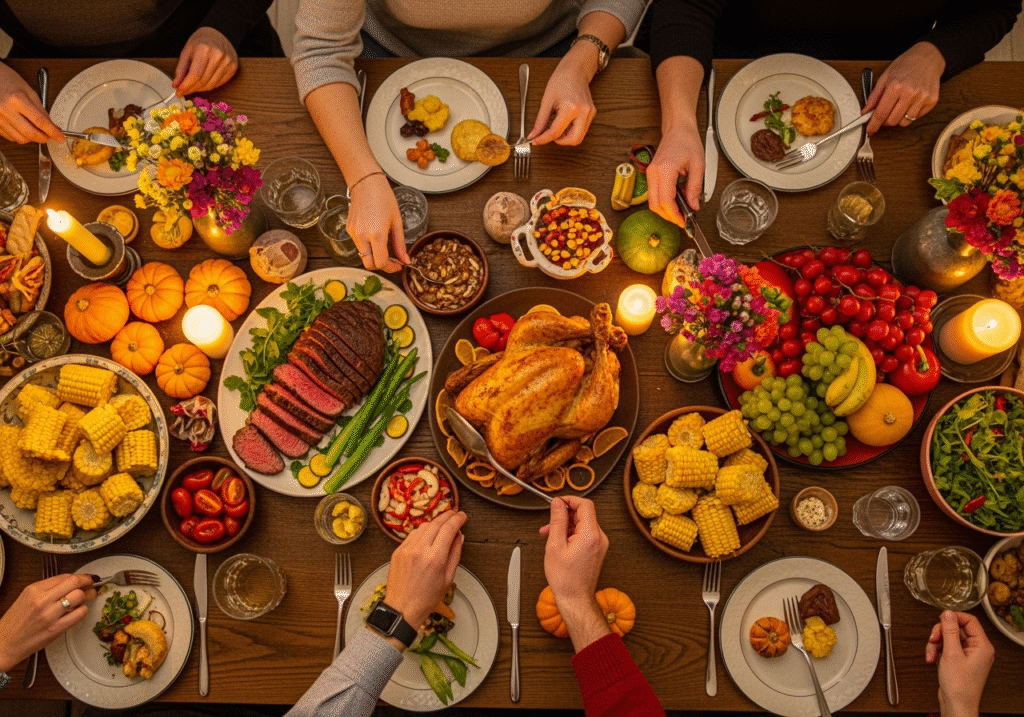
As Thanksgiving approaches, many of us pause to reflect on what we’re grateful for—family, food, health, safety, and opportunity. These are good gifts from a gracious God, and it’s right to give thanks for them. But this year, I’ve been thinking about gratitude in a deeper way—one not rooted in abundance, but in
relationship.
We live in a culture that defines flourishing as independence, success, and self-sufficiency. Yet the more we chase those things, the more fragmented and lonely we become. Even in a world overflowing with opportunity, so many live with an ache of “not enough.”
At the Mission, we believe flourishing means something far richer. True life is found in right relationships—with God, self, others, and creation. That’s the story of God’s kingdom breaking into our broken world: Christ reconciling all things to Himself and inviting us into a new way of being human (Colossians 1:20).
In God’s story, the opposite of poverty isn’t wealth—it’s shalom—a Hebrew word that means peace, wholeness, and right relationship. Material need is often a symptom of something deeper: relational and spiritual brokenness. The good news is that Jesus came not only to forgive sins, but to make all things new—to restore us to Himself and to one another.
That’s what I’m thankful for this year.
I’m thankful for the men and women in our program at the Mission who are discovering that truth firsthand. They’re learning that they are made in God’s image—gifted, dignified, and capable of contributing to His kingdom. Through new relationships in local churches, regular worship, and daily community life, they are being restored—one relationship at a time.
I think of one man who came to the Mission feeling invisible and unwanted. Over time, through the encouragement of our community and the love of a local church family, he began to see himself differently. Today, he’s serving others, praying for his peers, and discovering that restoration isn’t just about recovery— it’s about relationship. Stories like his remind us that God’s grace is still at work, one life at a time.
We call this process Relational Restoration, and it’s at the heart of everything we do. It’s not about “fixing” people—it’s about walking with them as they rediscover who God made them to be. Whether it’s through a shared meal, a meeting with their ally, or a relational micro-course, every act of participation becomes part
of the story God is writing—a story of renewal through relationship.
Development happens with people, not for them. In God’s kingdom, participation isn’t a means to an end— it’s a reflection of our dignity as image-bearers created to co-labor with Him.
I’m also thankful for the local churches that partner with us in this work. Our vision is to see the local church boldly engaged in relational restoration—to see God’s people coming alongside the hurting, discipling them, and helping them find their place in the family of faith. Every time a local church welcomes someone
experiencing poverty into its life and walks alongside them, the kingdom advances. This is what it means to reach the lost and gather the reached.
And I’m thankful for you. Your prayers, your partnership, and your presence make this ministry possible. You remind us that we don’t do this work alone. Together, we’re building a community that refuses to settle for the American Dream and instead longs for the New Jerusalem—a place where God dwells with His people, wipes away every tear, and makes all things new (Revelation 21:3–5).
As you gather around your Thanksgiving table, I encourage you to remember the greater table Christ has set before us—a table where the hungry are fed, the lonely find family, and the broken are made whole. At that table, gratitude isn’t just a feeling—it’s participation in the story of God’s redemption.
This year, may we give thanks not only for what we have, but for who we are becoming—by grace, through faith, and in community.
Partner with us in God’s work of relational restoration.
